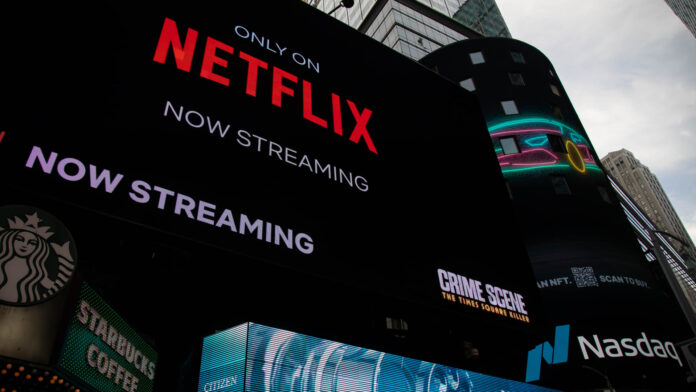Netflix should offer investors some safety in the wake of a looming recession as the company cracks down on password sharing, according to Jefferies. The firm upgraded shares of the streaming platform to buy from hold and boosted its price target to $385 from $310, implying a more than 17% upside for the stock. Netflix shares rose more than 1% in premarket trading following the upgrade. “We’re upgrading Netflix to buy based our belief that a well-executed strategy of launching [advertising-based video on demand] with password sharing changes will drive revenue and adjusted EBTIDA well above Street estimates, resulting in margin upside and valuation expanding back towards historical averages,” analyst Andrew Uerkwitz wrote in a Thursday note. Password game Jefferies estimates that there are about 100 million households that steal passwords and another roughly 80 million that participate sharing a login. Those sharing passwords are more likely to retain membership to Netflix, while borrowers must decide to stay or leave – Jefferies estimates 50% retention by the end of 2023, growing to 67% by 2024. They also expect members using advertising-based video on demand and subscription video on demand options at Netflix to contribute $6 billion to $7 billion in revenue by 2024. That will result in an overall revenue of more than $40 billion in the same year, according to Jefferies. Of course, Uerkwitz sees near-term pressure for Netflix in the first half of 2023 with a stronger back half of the year and 2024. Because of this, investors buying in now should expect to be patient, he said. Jefferies estimates for adjusted EBIDTA is about 3% below the Street consensus in 2023 but roughly 27% above consensus in 2024. Overall, Jefferies expects Netflix will prove itself to be a consumer discretionary staple as it navigates a changing business landscape due to economic weakness. The management team going forward will demonstrate discipline in content spend and margin expansion, putting them back on track to consistently grow operating margins and free cash flow. Netflix should also be able to weather unsustainable content spend from competitors, according to the note. The biggest risk to Netflix is “– ads and stricter policies against sharing go against the company’s long developer ethos of being consumer friendly,” said Uerkwitz. “Reputation damage is very difficult to reverse.” Netflix shares are coming off a terrible year, losing 51% in 2022. However, Uerkwitz said that, “With a potential recession looming, we are looking for safety and names that have downside de-risked.” — CNBC’s Michael Bloom contributed reporting.
© heardonwallstreet.com


